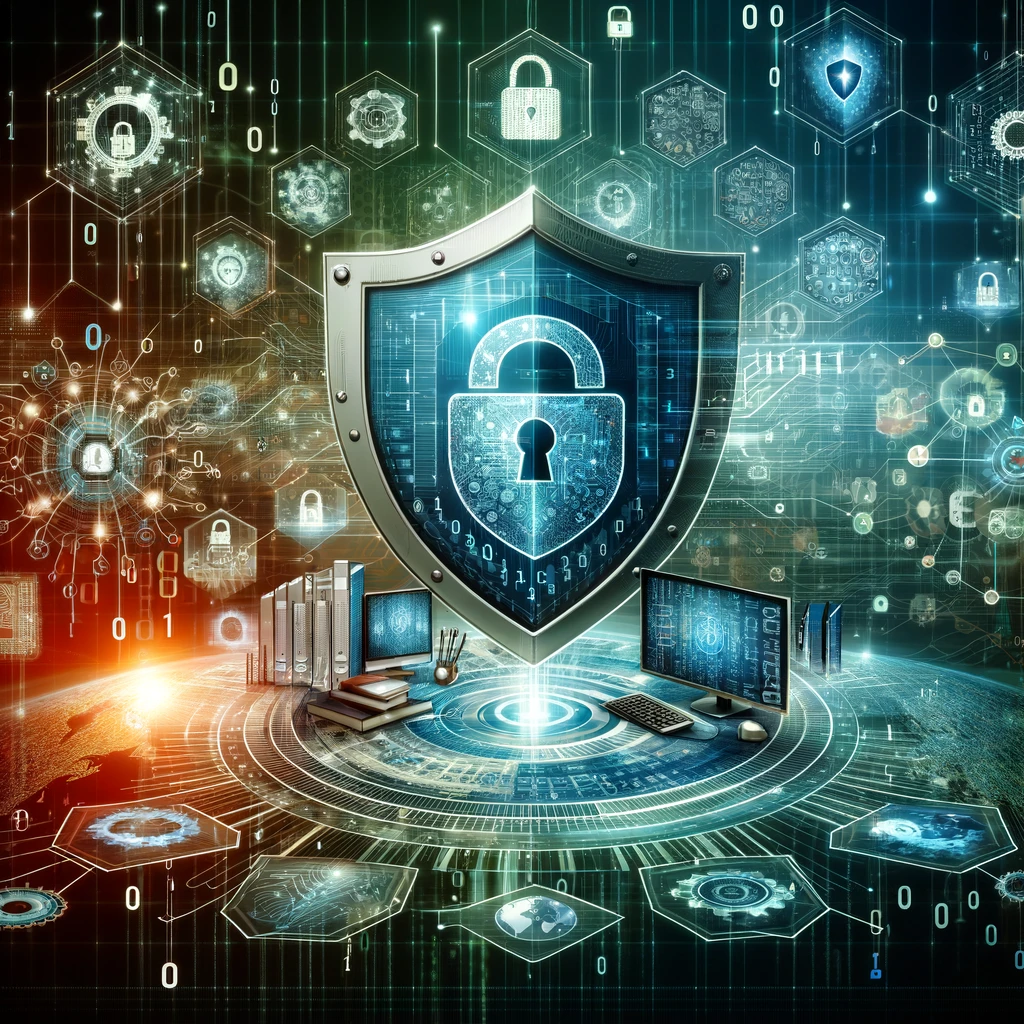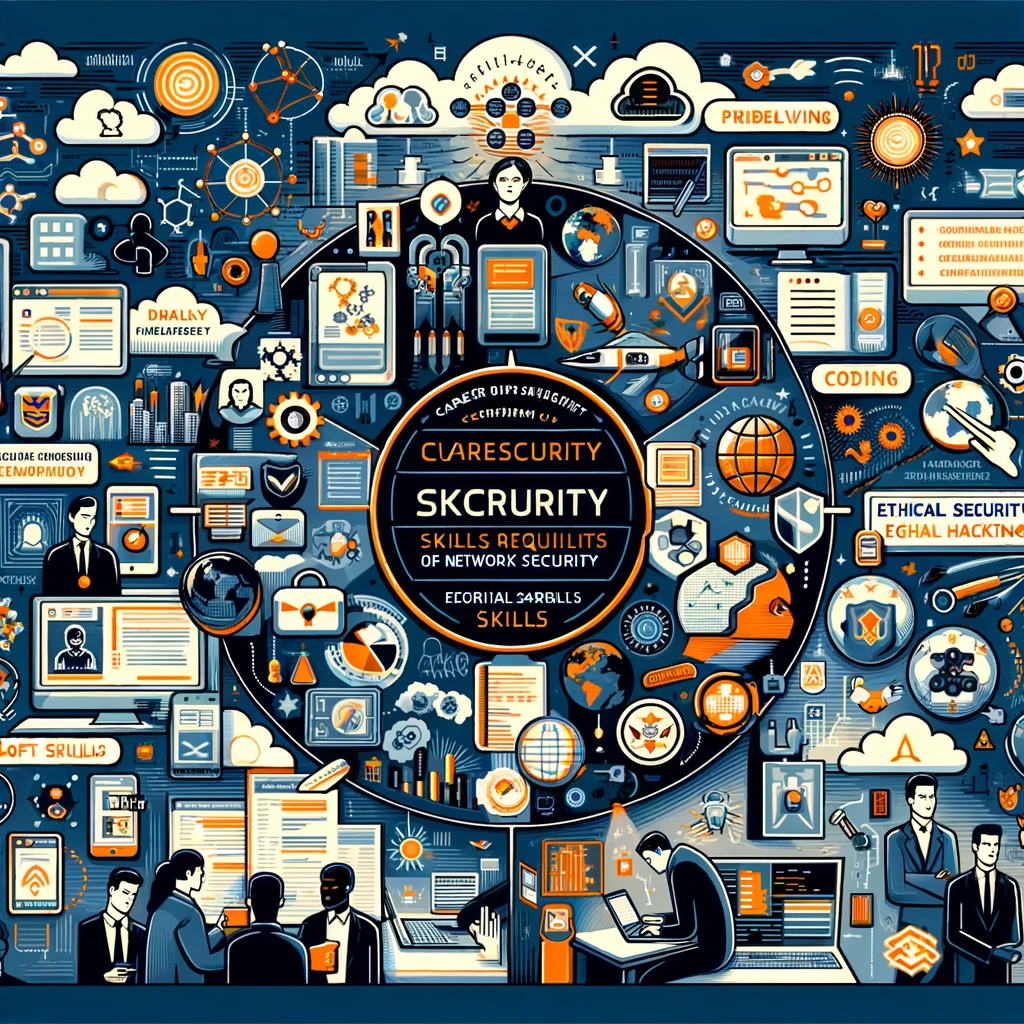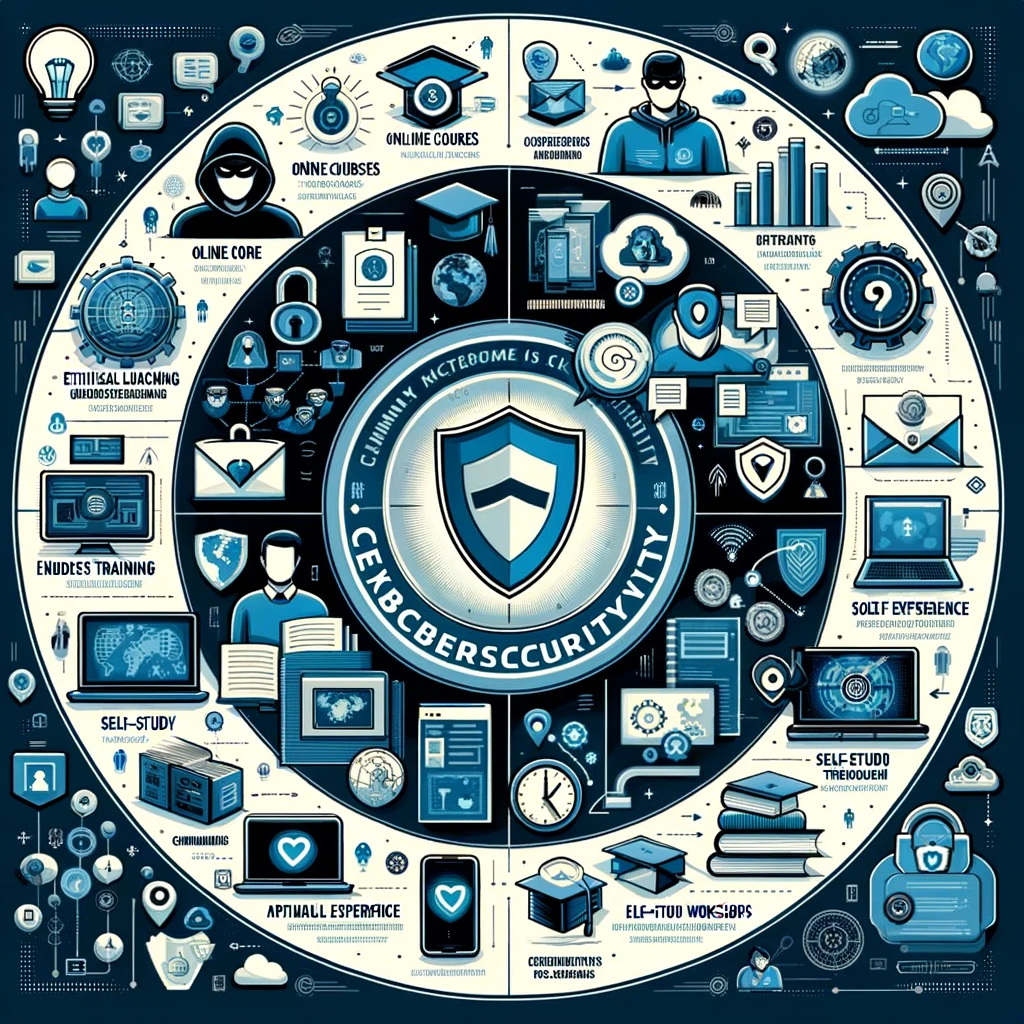Cybersecurity is the practice of safeguarding systems, networks, and data from digital threats. It is increasingly vital in a world where the number of devices surpasses the human population and cyberattacks are becoming more sophisticated. A multi-layered cybersecurity approach involves protecting computers, networks, and data through coordination of people, processes, and technology. This includes strong passwords, awareness of email threats, and regular data backups. Organizations must be prepared for both attempted and successful cyberattacks, using frameworks like NIST to identify, protect, respond to, and recover from attacks.

Technologically, cybersecurity encompasses the protection of endpoints, networks, cloud services, and information, employing tools like firewalls, malware protection, and encryption. With the growing importance of cybersecurity, the cost of breaches is escalating, and the global cyber threat is evolving rapidly. Everyone, from individuals to large organizations, needs cybersecurity to guard against various threats like malware, phishing, and denial-of-service attacks. Cybersecurity is critical not just to protect sensitive data and financial assets, but also to ensure the functioning of critical infrastructure and societal well-being.
What Exactly Does Cyber Security Do?
Cybersecurity is a comprehensive practice aimed at safeguarding digital assets including computer systems, networks, and data from cyber-attacks or unauthorized access. It encompasses a variety of strategies and technologies to protect against threats like hacking, malware, and phishing. Cybersecurity measures are essential for organizations handling sensitive information, ensuring the integrity, confidentiality, and availability of data. This field involves continuous monitoring and real-time assessments to adapt to the ever-evolving nature of security risks.
It includes network security, application security, endpoint security, data security, and identity management, among others. Cybersecurity not only defends against various forms of malware but also educates users on safe practices and ensures compliance with legal and regulatory standards. It’s crucial for mitigating risks, responding to incidents, and recovering from breaches. With cyber threats increasingly sophisticated, staying ahead requires constant vigilance and adaptation in cybersecurity strategies.
What Skills are Needed in Cyber Security?
To excel in cybersecurity, a diverse skill set is essential. Key technical skills include a deep understanding of network and system administration, various operating systems, and cloud security. Knowledge of programming languages like Python, JavaScript, and C++ is critical, along with expertise in network security control and blockchain security. Familiarity with IoT security is increasingly important as the number of connected devices grows.

Cybersecurity professionals must also possess strong problem-solving skills and technical aptitude to address complex security challenges in various technologies and digital environments. They should be detail-oriented to effectively detect vulnerabilities and risks, and have strong communication skills to collaborate and convey complex information clearly.
An understanding of ethical hacking is necessary to anticipate and counter potential breaches. Additionally, foundational computer forensics skills are useful for understanding data compromise and recovery.
Staying abreast of the latest developments in cybersecurity is vital due to the field’s fast-changing nature. Formal training or education in cybersecurity can provide a solid foundation in its principles and various technical aspects. Skills like risk analysis, security incident handling, security audit, and knowledge of laws and regulations are also pivotal. Soft skills like adaptability, collaboration, and critical thinking complement the technical skills, making a well-rounded cybersecurity professional.
What is the Future of Cybersecurity?
The future of cybersecurity is shaped by the escalating complexity of cyber threats and the integration of advanced technology. As our reliance on technology deepens, so does the importance of robust cybersecurity measures. The digital landscape faces challenges such as sophisticated ransomware attacks and the exploitation of USB devices as potent threats, especially in industrial contexts. The shift to remote working necessitates secure remote access, demanding revamped security strategies for decentralized infrastructures.
Key trends include an increased focus on prevention and preparedness, with organizations prioritizing incident response planning and employee training to reduce human error. The technological arms race between cybersecurity professionals and threat actors continues to evolve, employing machine learning, AI, and the impending integration of quantum computing. These technologies will enhance the ability to identify and respond to threats more efficiently, despite their limitations against complex, diversionary tactics employed by attackers.
Quantum computing emerges as a double-edged sword, offering breakthroughs in problem-solving and data analysis but also posing significant risks by potentially cracking advanced encryption and cybersecurity measures. Meanwhile, cloud computing is becoming a cornerstone in cybersecurity strategy, offering scalability, cost reduction, and access to specialized expertise, thereby enhancing organizational resilience against cyber threats. In this dynamic scenario, a multi-layered defense strategy remains essential, with no single solution to eliminate cyber risk completely.
How Do I Learn Cyber Security?
Learning cybersecurity involves a multifaceted approach, combining self-discipline, motivation, and access to a variety of educational resources. As an emerging field responding to increasing cyber threats, cybersecurity skills are crucial for protecting digital data and systems from attacks. Fortunately, numerous online courses, certifications, and free learning resources are available, making it possible to self-educate effectively in this domain.

Beginners can start with foundational courses covering key concepts like attack vectors, security compliance, operating system and network security, incident response, and penetration testing. Those with a passion for technology and problem-solving will likely find the challenge of cybersecurity engaging. Learning tools range from ethical hacking and simulated environments to formal courses offered by reputed institutions and online platforms like Coursera, edX, and Udemy. Continuous, daily learning and practical application through ethical hacking and simulated scenarios enhance skill development.
For those considering cybersecurity as a career, there are various paths, including roles as ethical hackers, cloud security experts, information security analysts, and specialists in digital forensics. The field requires not only technical know-how but also strong workplace skills like effective communication, collaboration, and critical thinking. Cybersecurity certifications such as CEH, CompTIA Security+, and CND are valuable for validating skills and knowledge in this rapidly growing field. With the right approach, dedication, and use of available resources, mastering cybersecurity is attainable for both beginners and professionals looking to specialize further.
Why Do We Need Cybersecurity?
Cybersecurity is essential in our digital age due to the increasing reliance on technology and the internet by individuals, businesses, and governments. With digital transformation comes heightened vulnerability to cyberattacks, making cybersecurity crucial for protecting sensitive data and assets against unauthorized access, theft, or damage. Cybersecurity not only safeguards personal and organizational information such as intellectual property, financial details, and customer data but also ensures operational continuity.
Key reasons for the growing importance of cybersecurity include the protection of personal data, preserving reputation and trust, enhancing productivity, and ensuring compliance with regulatory standards. Cyberattacks, ranging from phishing to ransomware, pose severe risks, including financial losses, data breaches, operational disruptions, and damage to reputation. The stakes are high, as seen in significant breaches like Equifax and Marriott, where millions of individuals’ data were compromised.
In response, businesses and individuals are investing heavily in robust cybersecurity policies and infrastructure, employing advanced technologies and practices to counter sophisticated cyber threats. This proactive approach is vital for survival and competitiveness in today’s technology-driven world. Cybersecurity is not just about implementing standard solutions but requires a comprehensive strategy, continuous learning, and adaptation to evolving threats and technologies.










